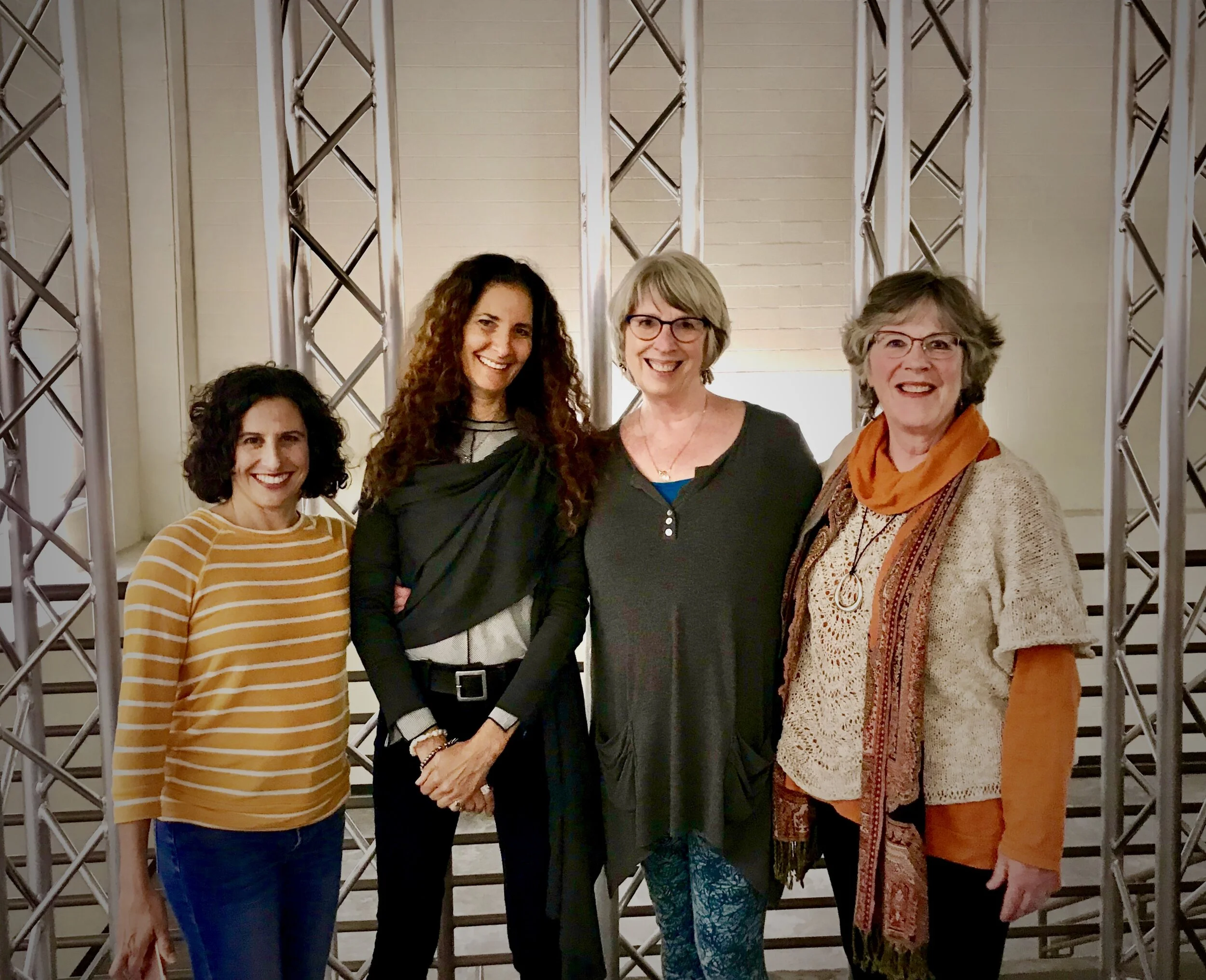Whatever you make, whether it’s as ephemeral as music or as physical as furniture, it’s a lot more fun when you belong to a group that encourages you, helps you solve problems, and critiques your projects. You become friends and your work improves.
My writing group is called the Radish Farm, a name that comes from a New Yorker’s interpretation of a Southerner’s pronunciation of the Writers’ Forum. There are four of us, and we adopted the name because it conjures up an image of a root vegetable unusual for its spiciness, and because we can call ourselves the Rads.
At a recent conference outside of Nashville
If you’re thinking of getting a group together, it helps to know what others do. But you have to make the process your own, depending on the craft you practice, the personalities involved, and the culture you live in. This is what we do: several days before our monthly meeting, we email our fellow Rads the pages we’ve been working on. This gives us time to read each other’s work (sometimes more than once) and write down our thoughts. We also think about how to frame our feedback so the person receiving it can best take it in.
Writing is a solitary business, so we meet in each other’s homes. We hang out, have a glass of wine and a few appetizers, then sit down to dinner. The host makes the main course, and the others bring sides. All this goes on between 6 and 7 p.m. Then we move to the living room.
We each get thirty minutes of feedback—ten minutes from each of the other Rads. It helps to time this, but we don’t spaz out about it. One person might comment for four minutes, another for fourteen. What’s key is this: the person receiving the feedback doesn’t defend or explain her pages, which would slow down the process and interfere with her own listening.
After all the feedback has been given, then the writer whose work is being critiqued gets to talk, usually to clarify her intentions and ask questions about the feedback. The “critics” can also to respond to each other’s comments—as in “I agree with what you said about this, but not about that, and here’s why.”
This process takes a lot of trust. We know and care about each other’s projects. We get invested. We talk about what works as well as what doesn’t. We get specific. We want our feedback to be actionable, but we don’t insist that it be acted on. It’s the other person’s book, after all.
Sometimes we go out for dinner and just hang out. We’ve traveled to writing conferences, and we’ve created our own retreats. We have tiffs every now and then, but we talk them out and move on. We email each other between meetings. We help each other make our writing stronger.
What do you love making? Who helps you make it better and have more fun doing it? If you don’t have a group, what can you do to find your tribe or create one?
